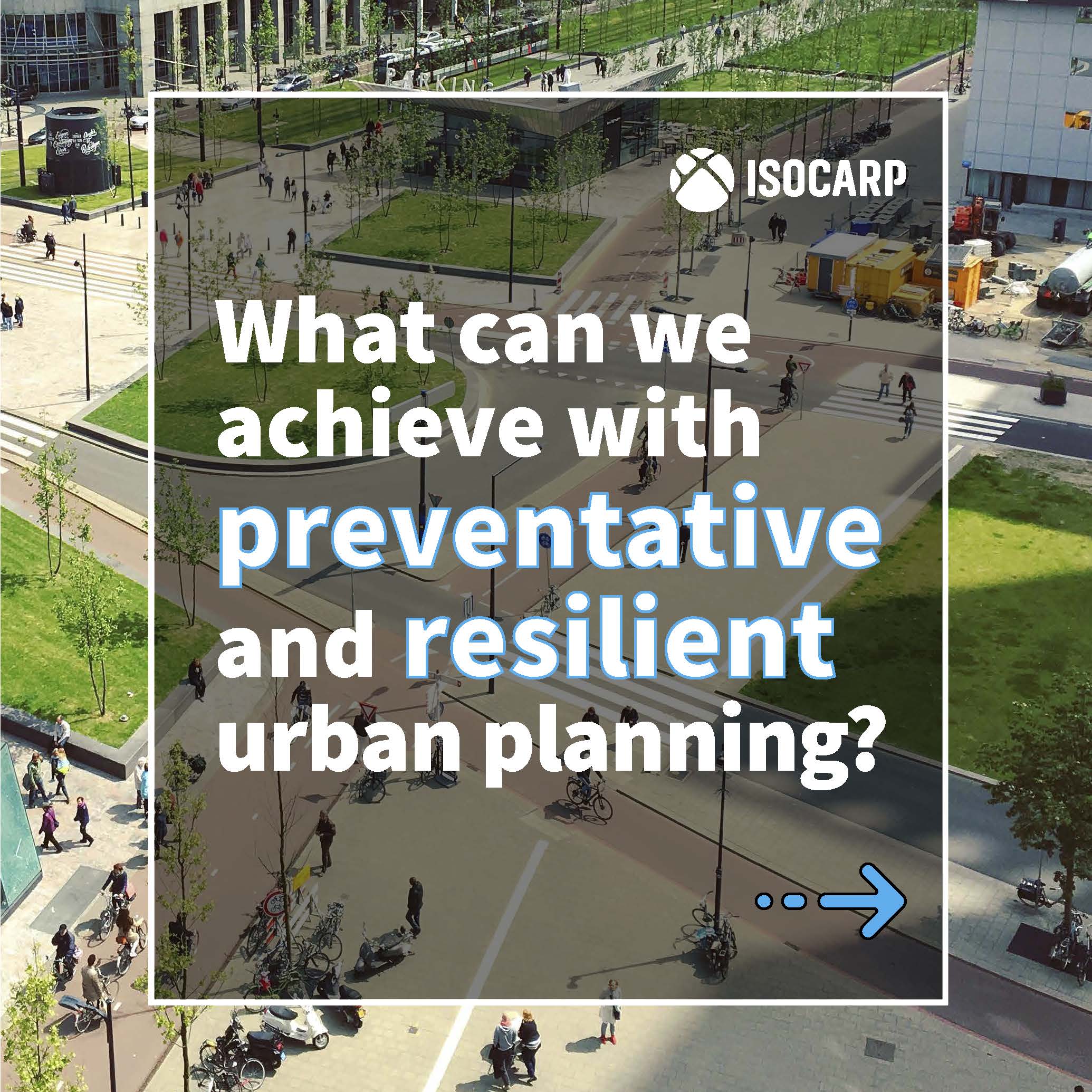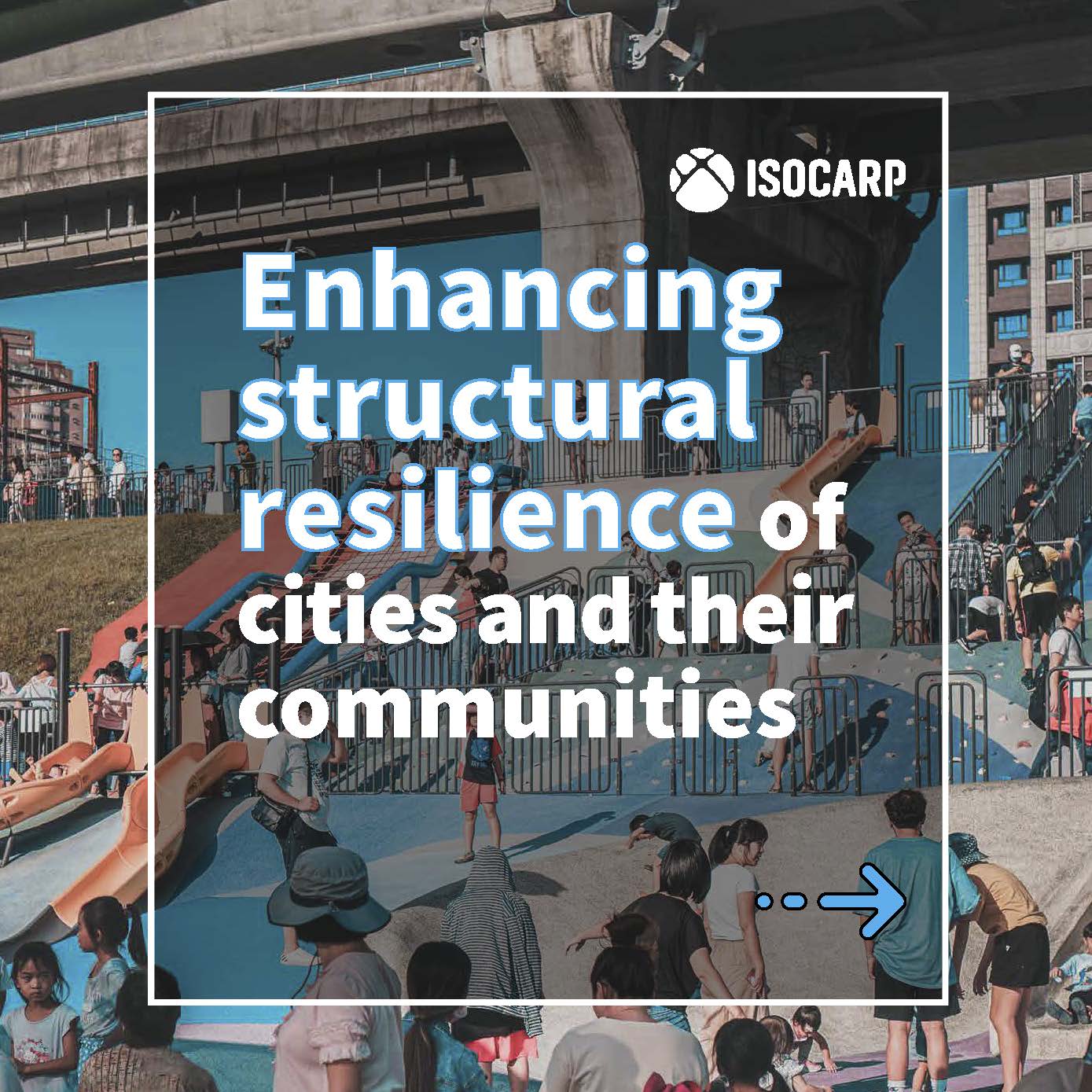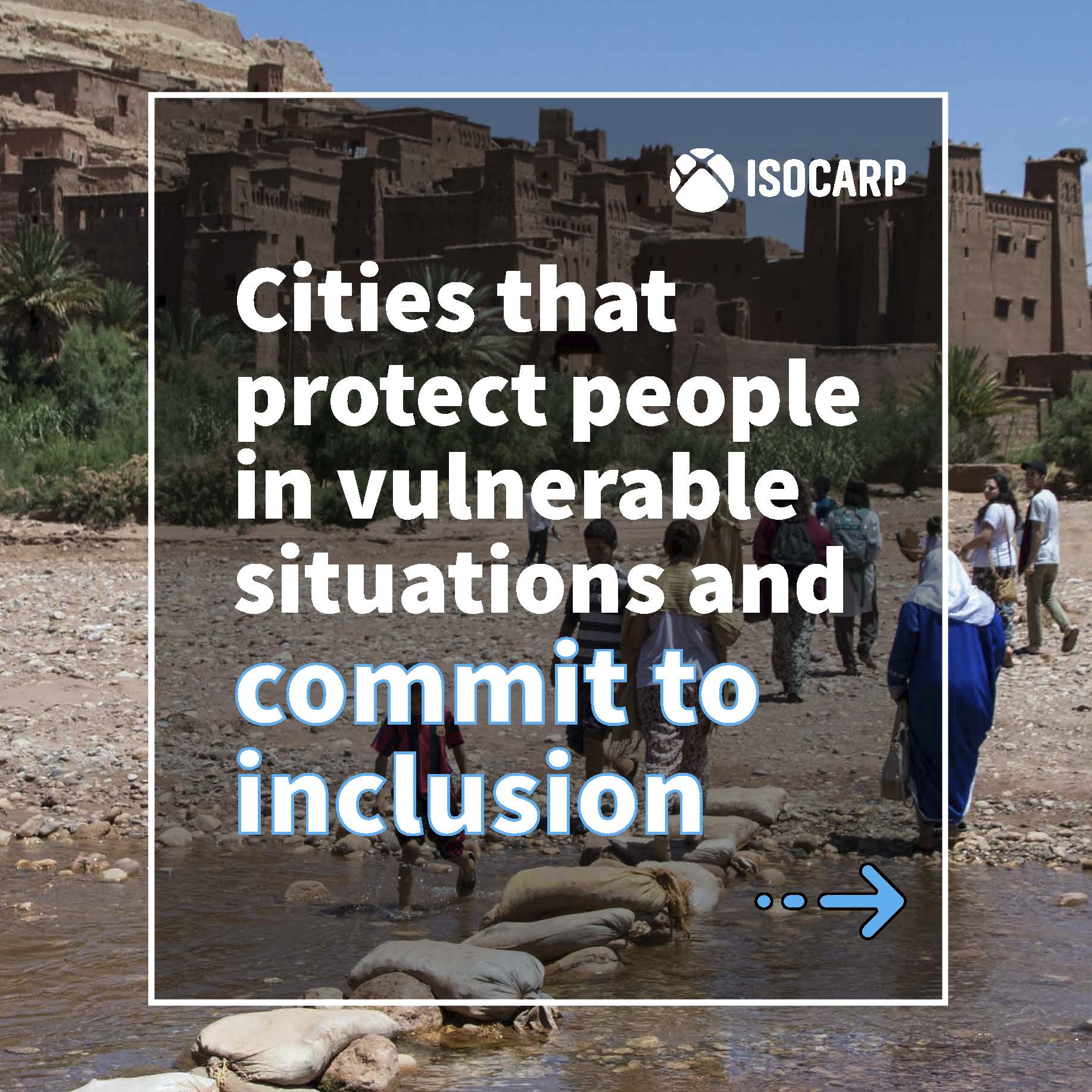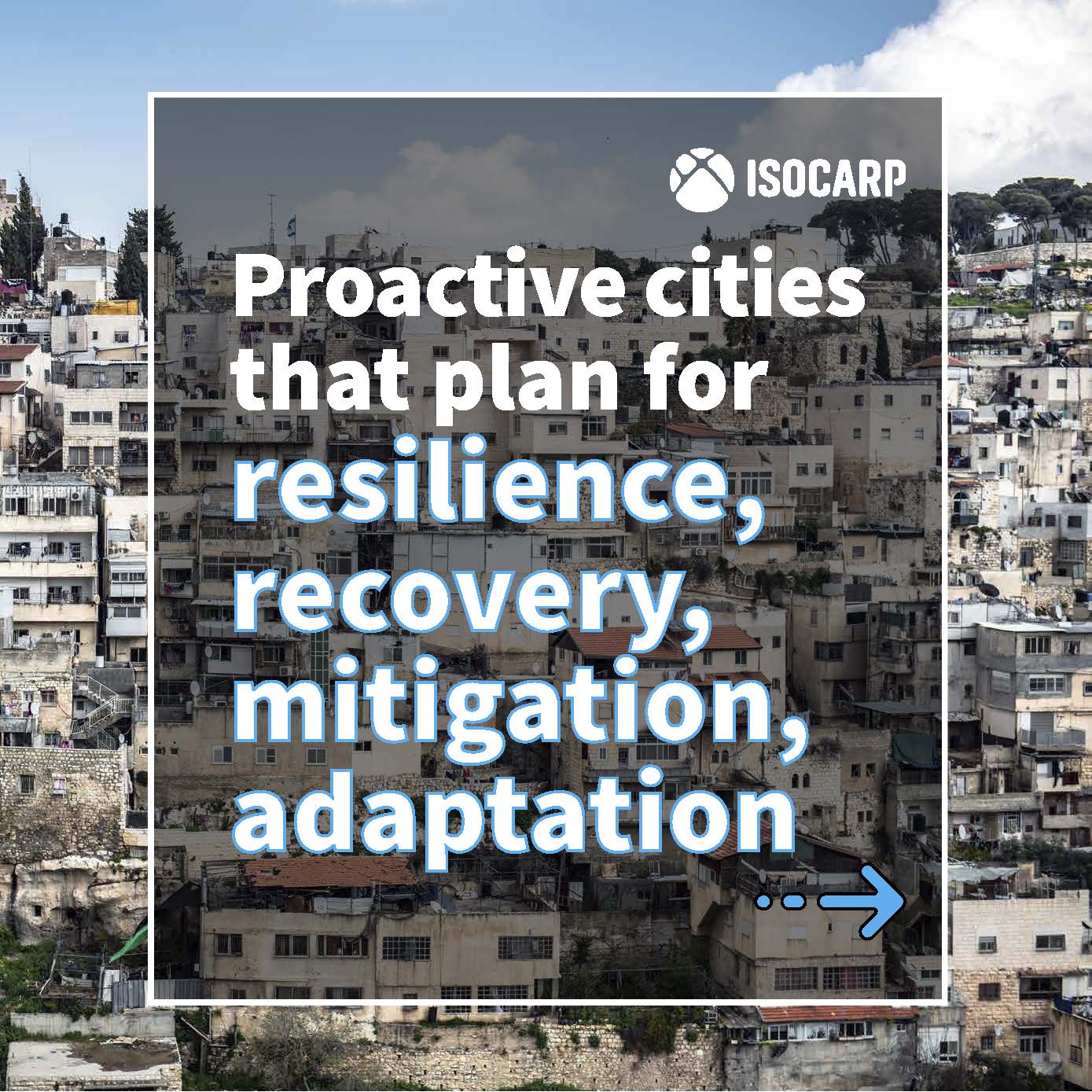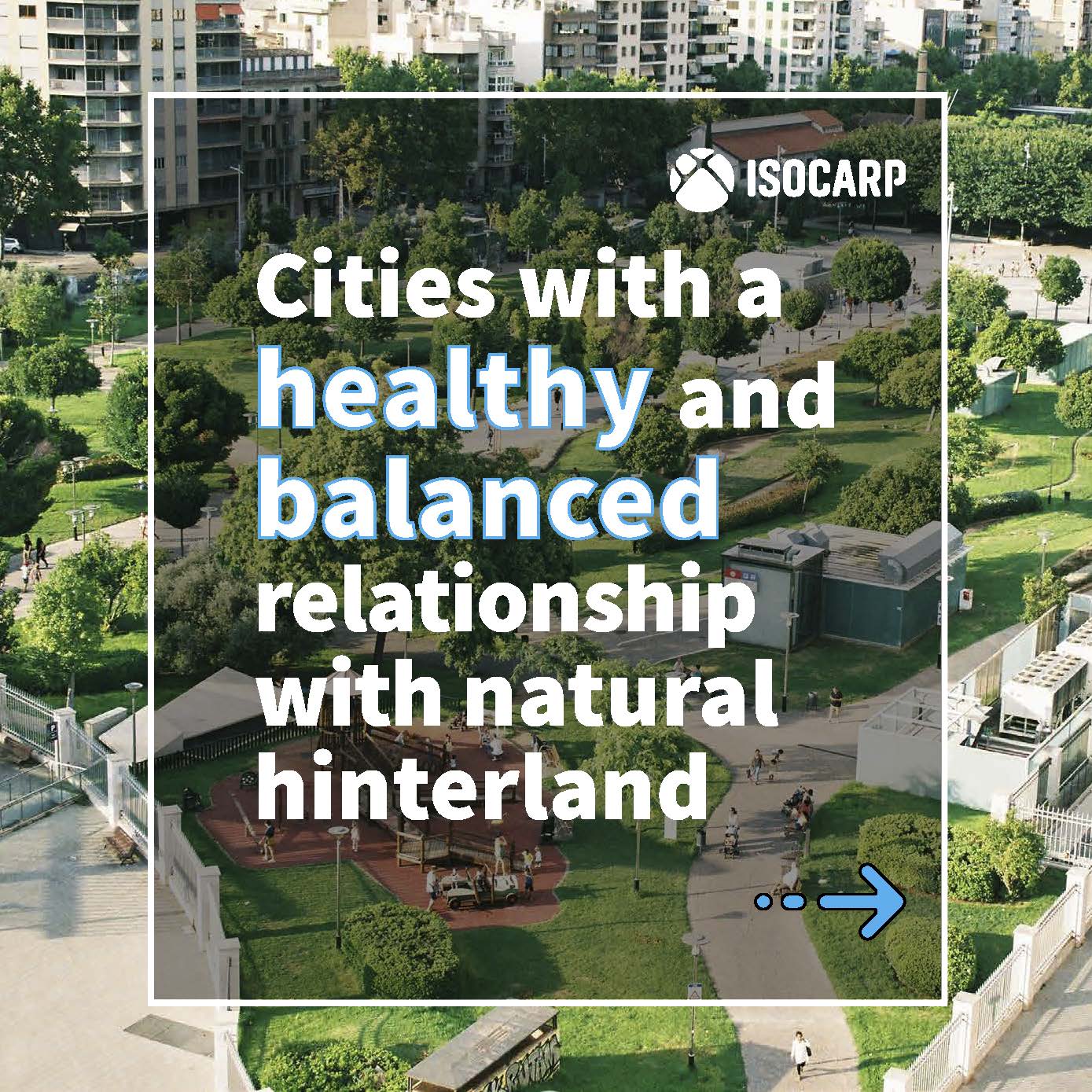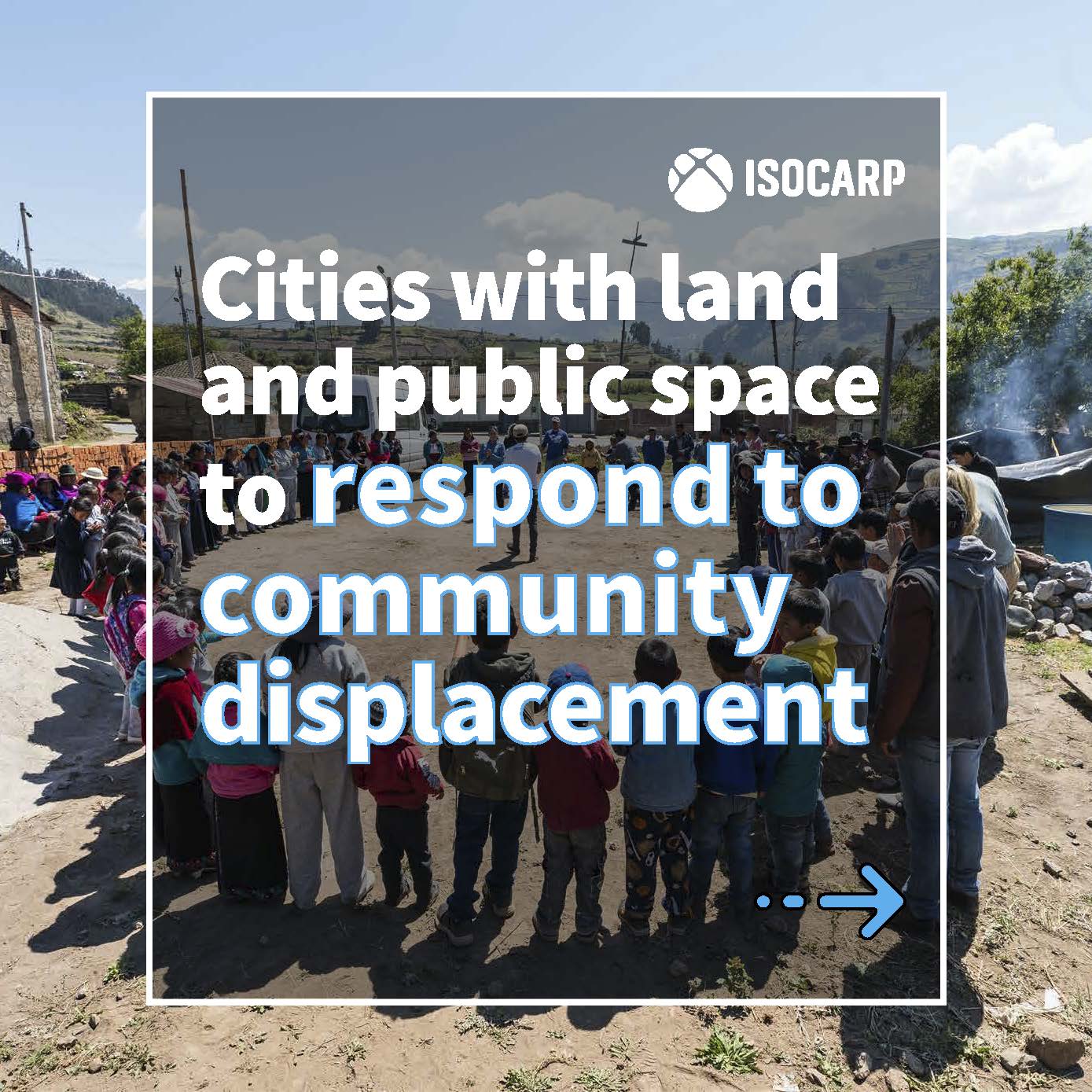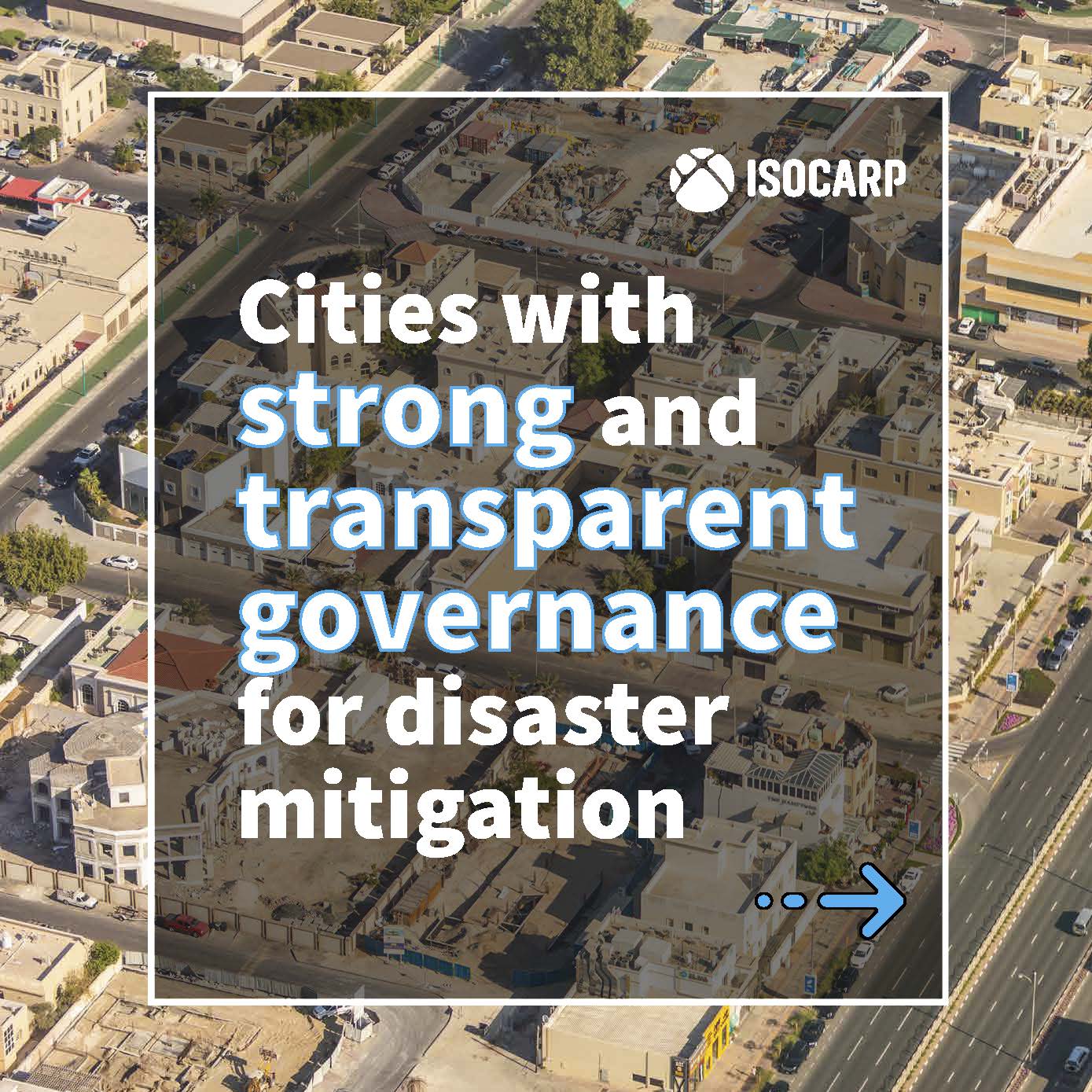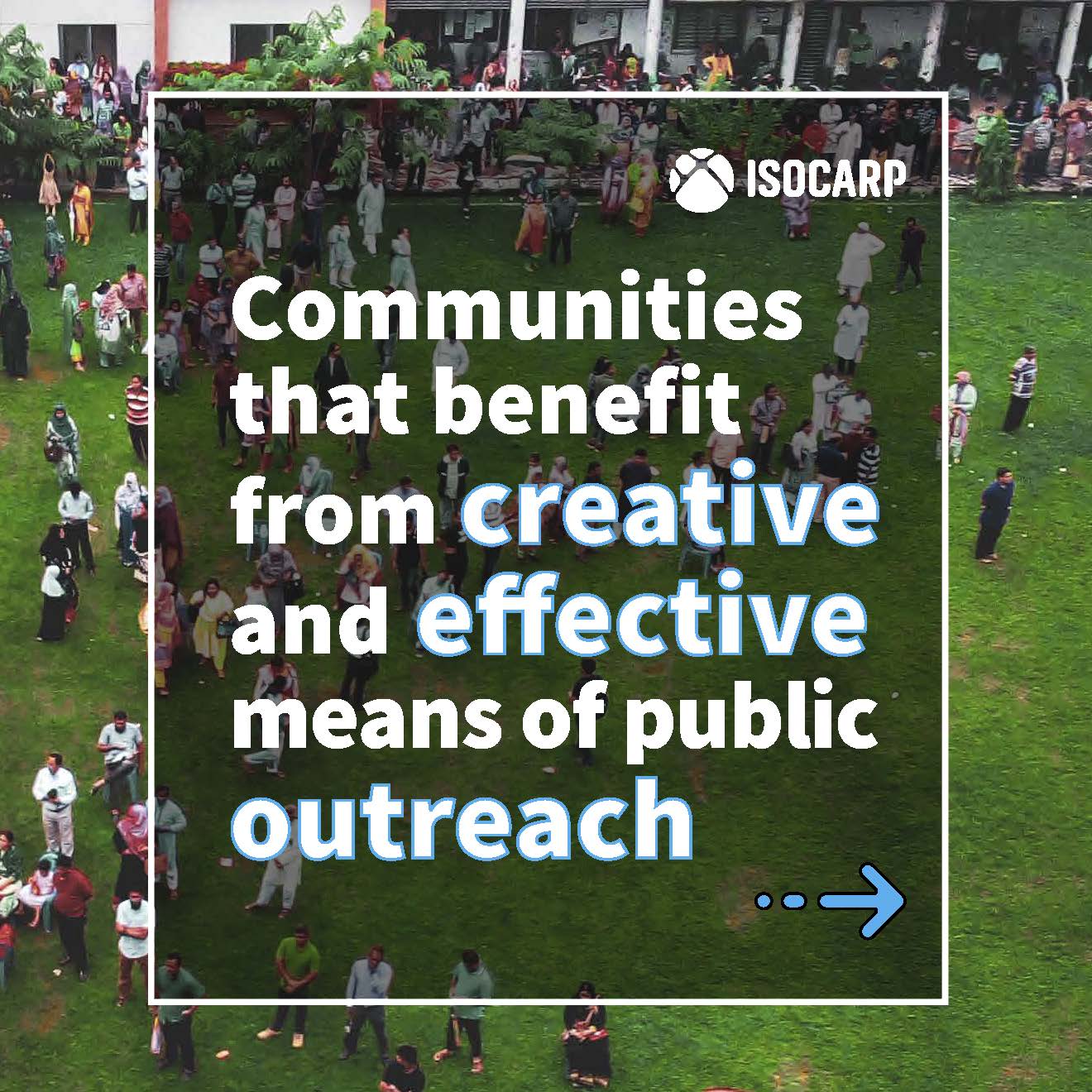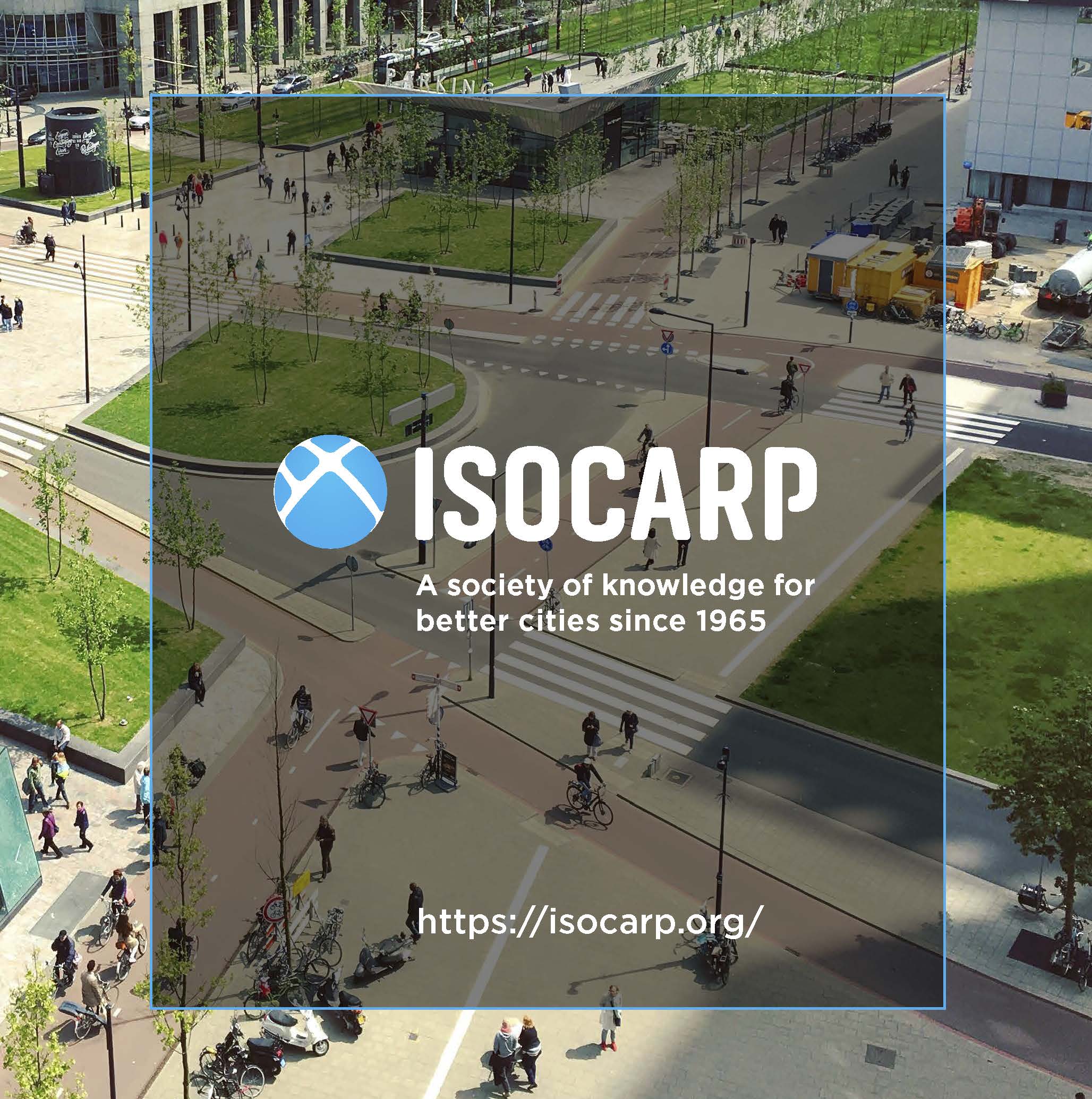ISOCARP POSITION STATEMENT
PRE- AND POST-DISASTER PLANNING
ISOCARP – SciCom
July 2023
ISOCARP recognises that global and local crises or acute shocks, such as climatic or environmental events, major health emergencies or other disruptive events have a disproportionate impact on cities and their inhabitants. This is particularly severe where vulnerable populations are affected: children, women, persons with disabilities, people from low socio-economic backgrounds or those facing any form of discrimination.
We believe that preparedness and solutions come not only from warnings and from effective emergency response, but also from the very system and communities that make up the city.
Preventative and resilient urban planning can limit the impact of these events, drive a stronger capacity to cope with disruptions and promote recovery of well-being and prosperity in cities. Planning and implementing pre-disaster actions is essential to strengthen post disaster recovery.
We want to draw attention to the role of spatial planning to ensure that:
- Cities and their communities have increased structural resilience, by reducing exposure to risks and vulnerability, as well as creating the fabric necessary for social interaction and localising essential services (social infrastructure, healthcare, etc). High inequality, social isolation and centralised / distant social services have been proven to weaken communities, making them significantly more vulnerable to the impacts of disasters.
- Cities safeguard vulnerable people so that they are protected and never excluded by embedding and upgrading their emergency response in up-to-date plans that identify key vulnerabilities and propose appropriate resiliency and mitigation measures. We recognise that some demographic groups are at a higher risk of harm or loss of life and livelihood in disaster situations.
- Cities identify in advance their own resilience measures including recovery, mitigation and adaptation goals and guidelines to support post disaster decision-making, ensuring that relief and recovery activities align with long-term development goals, address actual needs, and enhance resilience to future disasters. All too often in emergencies and in reconstruction, decisions are taken for short term expediency or gain, leading to increased future potential risks.
- Cities retain a healthy and balanced relationship with their natural hinterland, so that access to food, energy and water can be more easily retained. In case of shocks, supply chains of basic products and services are easily disrupted.
- Cities secure sufficient land and open public space ready to respond to community displacement. Without a robust plan, any emergency response will be delayed, more expensive and less effective, eventually ignoring the obvious links between emergency solutions and sustainable urban futures.
- City governance is strong, well-resourced and transparent, to ensure that disaster mitigation measures and post-disaster policies are consistently and fairly applied, no matter the income level of inhabitants. This includes enforcing building codes, rules and regulations, prohibiting development in disaster prone locations and in areas that would increase the impacts of shocks elsewhere while ensuring an inclusive approach to relocation and land readjustment policies. City governance should also benefit from appropriate finance, human capacity and other resources to prepare and address shocks.
- All communities benefit from creative and effective means of public outreach to maximise disaster preparedness and mitigate the risk of harm and loss of livelihood.
Over the course of the next 36 months, we will research policy and good practice further, foster dialogue, disseminate our findings and raise awareness among urban planning professionals and institutions.
CONTACT:
Tijana Tufek Memisevic, ISOCARP SciCom – tijana@candarc.com
Ulrich Graute, Chair of ISOCARP SciCom – chairscicom@isocarp.org
ISOCARP Scientific Committee members:
Martina Juvara
Tijana Tufek Memisevic
Pia Carrasco
Hadeel Abuzaid
Sebnem Hoskara
Nasim Iranmanesh
Zeynep Enlil
